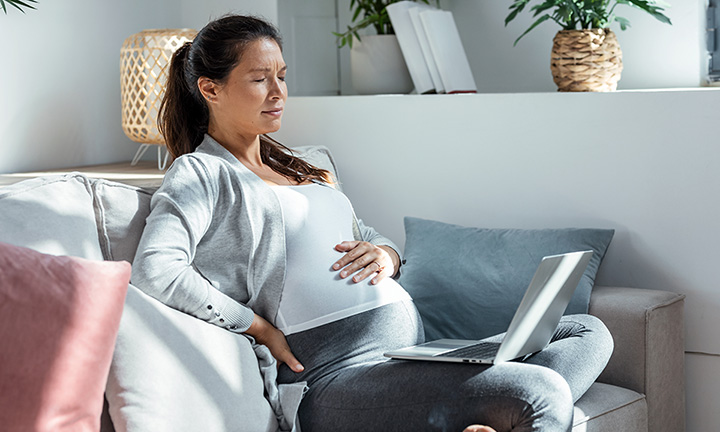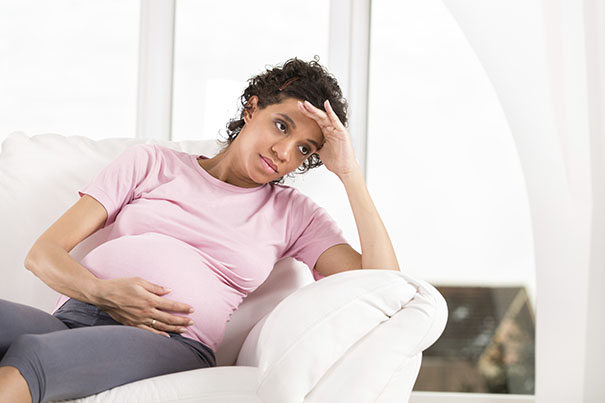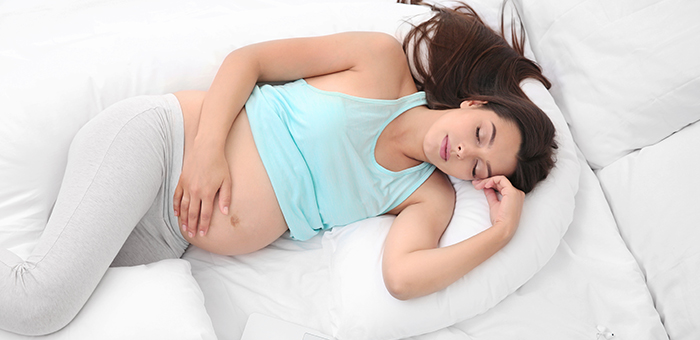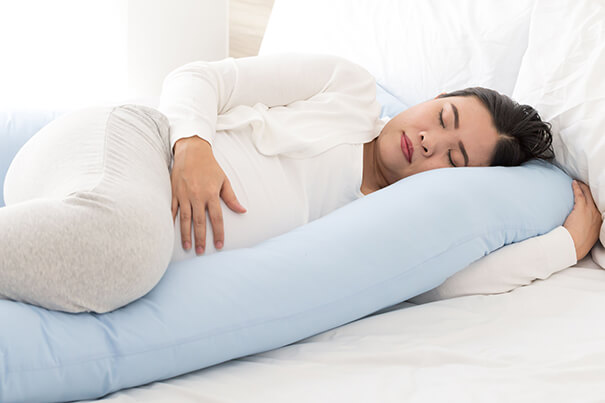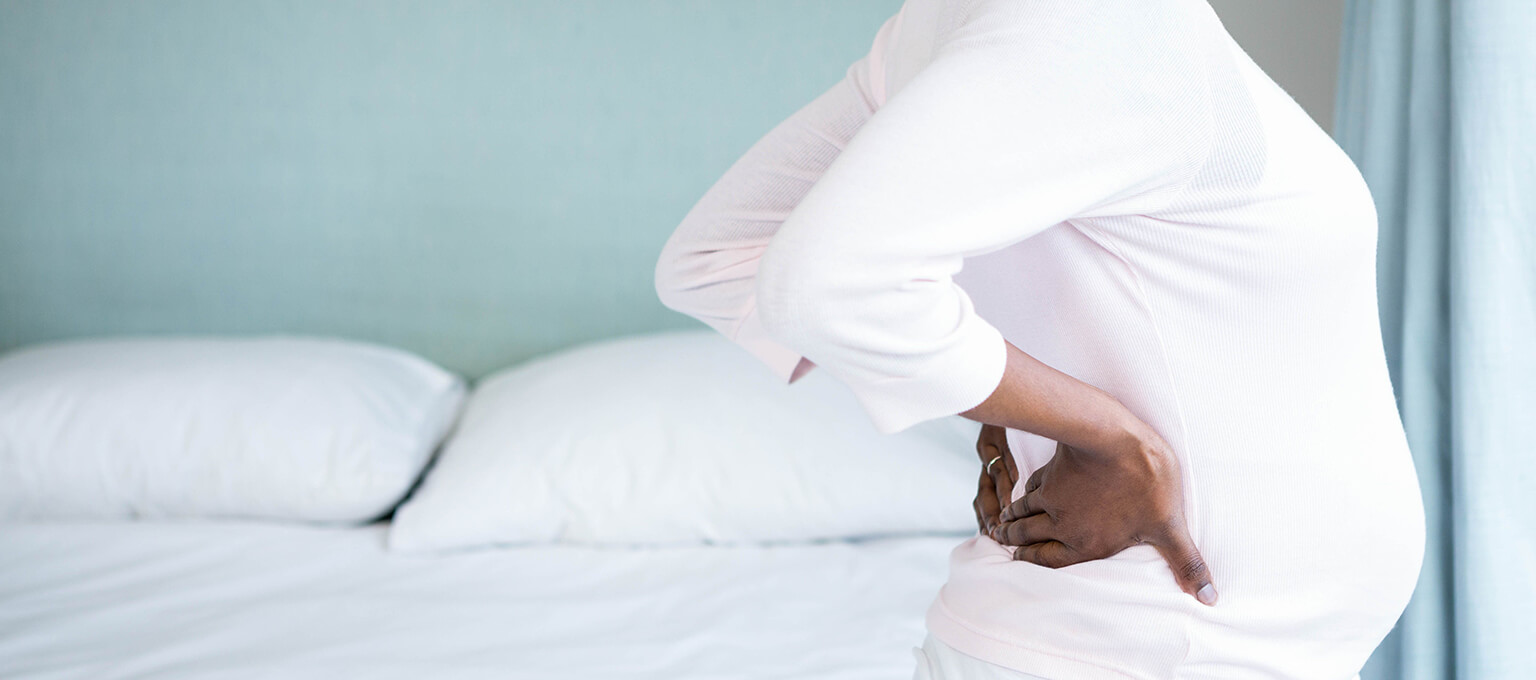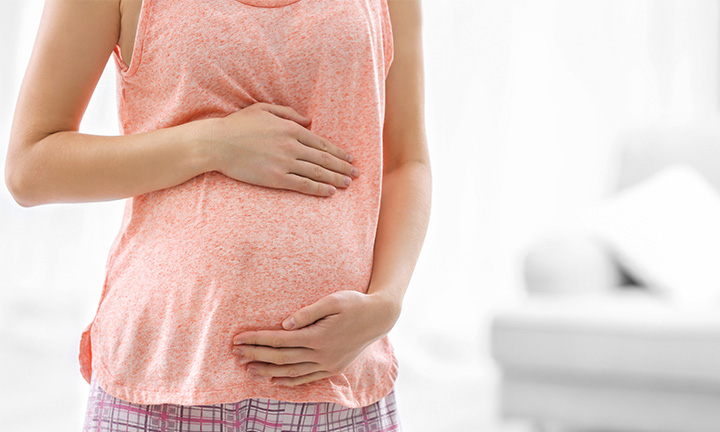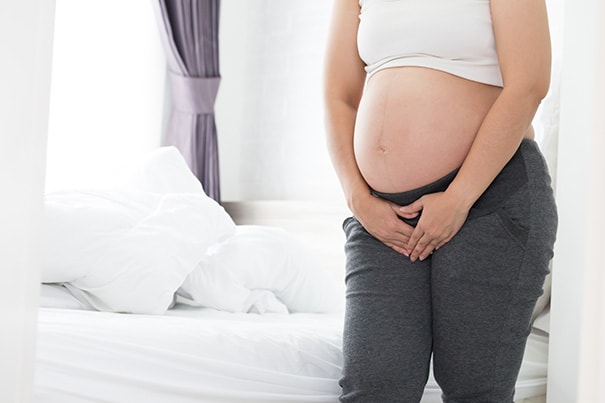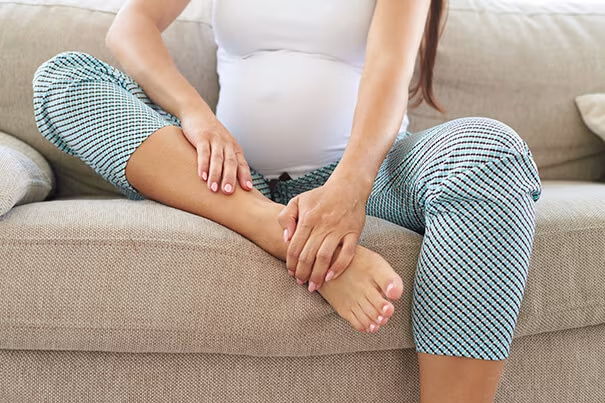
The A-Z of Body Aches and Pains in Pregnancy
Even the smoothest-sailing pregnancy comes with its share of pregnancy aches and pains. Luckily, some of these discomforts will go away as your pregnancy progresses, while other aches and pains can be easily soothed. From back pain to varicose veins, read on to find out more about the most common aches and complaints you may have during your pregnancy, and what you can do to make life more comfortable.
Back Pain
The most common cause of back pain comes from the strain put on the joints of your lower back and pelvis as your baby gets heavier. As your weight shifts to the front of your body, you may try to maintain your balance by leaning backwards, which puts additional pressure on the back muscles and can result in pain, stiffness, and soreness. Your abdominal muscles also stretch and weaken over the course of your pregnancy, so you may find your back and spine don’t get the support they need. Pregnancy hormones also contribute to pregnancy-related back pain by relaxing the connective tissue holding your bones in place, especially the ligaments in the joints of your pelvis, in preparation for birth.
The good news is you can take measures to reduce the pain, like maintaining good posture when you stand, sit, or move. You can also:
Regular exercise may not give you immediate pain relief, but strengthening your back muscles can help support your back and legs and ease your back pain in the long term. Talk to your GP about finding the right exercise plan for you while you’re pregnant, but for some inspiration, you can check out our exercising while pregnant tips. Don’t forget that once your little one is born, you won’t be putting that same degree of strain on your back anymore, and you’ll probably start to feel better.
Cramps During Pregnancy
Abdominal pain is not unusual in pregnancy whether it’s toward the end, when your body launches into practice contractions, or in the first month, during which you may experience mild cramps.
Approximately two weeks following conception, you may feel some light cramping accompanied by light bleeding when the fertilised egg burrows into the lining of the womb. This is known as implantation bleeding. Sometimes the cramping or aches and pains you may feel can also arise due to soaring progesterone levels in early pregnancy. You may also feel a sharp pain, or what feels like a muscle spasm, in your pelvis due to the stretching ligaments around the uterus. You can read more about lower abdominal pain.
Toward the end of the second trimester and into the third, you may experience practice contractions, known as Braxton Hicks contractions, which can get stronger as you approach your due date. Braxton Hicks contractions usually stop when you take a walk or a rest, but if they get closer together and stronger, look out for any other signs of labour, and consult your midwife or GP if you’re concerned. Braxton Hicks may hurt a little, but they’re perfectly normal, and you can just take them as practice for the big day.
Dental Pain and Sensitivity
During pregnancy you may find your gums feel more sensitive while you’re flossing and brushing, and perhaps even bleed slightly. Pregnancy can affect your teeth with issues like pregnancy gingivitis. You can also experience swelling, redness, and bleeding while brushing, as well as inflammation around the gums. You'll also want to look out for periodontitis, a gum infection that damages the soft tissue and the bone that supports your teeth, and tooth erosion or cavities due to vomiting in your early pregnancy.
Even if your gums are feeling tender, it’s important to keep on brushing twice a day and flossing daily. If you haven’t seen a dentist in the past six months, or if you notice any issues, like tender gums or pain, book an appointment with your dentist. In the meantime, you can alleviate discomfort by rinsing with salt water or switching to a softer toothbrush.
The good news is that you can get free dental care during pregnancy and up to one year following the birth. You’ll need to apply for a maternity exemption certificate to qualify, but just ask your midwife, GP or nurse for the form and have them sign it after you’ve filled out parts one and two.
Headaches
As pregnancy hormones soar, they may cause headaches. Although it might be tempting to simply pop a painkiller, discuss your options with your GP. There are some painkillers you should avoid during pregnancy, like codeine unless prescribed, but your GP might recommend paracetamol or another medication to help relieve headaches. You might also want to try the following strategies to manage headaches during pregnancy:
However, severe headaches could point to another condition like high blood pressure or pre-eclampsia, so talk to your GP or midwife if you’re experiencing these.
Heartburn and Indigestion
When you’re pregnant, your pregnancy hormones will relax the valve sphincter between your oesophagus and your stomach, allowing stomach acid to leak back and cause heartburn during your pregnancy. Not to mention your growing baby will also be pressing against your stomach. Try to avoid lying down after a meal, ideally for three hours, to help prevent heartburn. This is why it’s a good idea to have dinner earlier in the evening and not just before bed. However, if you find you still suffer from heartburn at night, you can elevate your head and shoulders using pillows or a wedge.
You can also help prevent heartburn by avoiding certain foods that can trigger your heartburn, like those that are fried or spicy, citrus fruits, chocolate, and by eating small, but frequent meals.
Leg Cramps
Leg cramps are one of the most common body aches experienced around the second trimester of pregnancy and in the third trimester as well. These muscle contractions in the calf or foot often strike at night, and their cause may be due to changes in your circulation or from mineral deficiencies, like calcium, phosphorus or magnesium. Later in your pregnancy, your enlarged uterus may press on your pelvic blood supply, which can cause a build up of acid and result in involuntary contractions in your calf muscles.
However, you can help prevent leg cramping during pregnancy by doing a few stretches before bed, and also by staying physically active and getting plenty of fluids during the day. Comfortable shoes with support help, too. If you find you’re waking up with leg cramps, stretch your muscles by flexing your foot upward, and then back down, to ease the discomfort. You can also have a warm bath or shower, or massage the muscles, and you’ll feel much better.
Lower Abdominal Pain
As your uterus grows during pregnancy, the ligaments that hold it in place will stretch. As they stretch, they can cause a sharp, short burst of pain that feels like a muscle spasm in your lower abdominal area. Sometimes, the pain can even linger with some residual soreness, and it can occur on either side. This pain is nothing to worry about; it’s just a kind of ‘growing pain’ you’ll feel as your baby grows. It just means your baby is getting bigger.
You can prevent and relieve these pains during pregnancy by moving more slowly than usual and by not rising too quickly from the bed or a chair. Try to avoid sudden movements. You may find that taking the weight off your uterus a bit can help ease the pain and discomfort, so try a warm bath or simply get into a swimming pool for a bit. You can use a maternity belt or an abdominal support garment, too.
Up to one in five women can develop a type of pelvic pain during pregnancy known as pregnancy –related pelvic girdle pain (PPGP). This pain usually appears over the pubic bone, on the sides of the lower back or the area between the vagina and anus. This is caused by pregnancy hormones relaxing the ligaments that support the pelvic joints. If you notice any pain around your pelvic area contact your midwife or GP since an early diagnosis can help you keep the pain to a minimum and also help you avoid any long-term discomfort.
Pinched Nerve
Oedema can cause nerve compression which results in swelling and pain. For example – paraesthesia, more commonly known as “pins and needles”, happens when pressure is applied to a part of the body and prevents the nerves from sending signals to your brain. Long-lasting paraesthesia in the hand and fingers, which can sometimes occur during pregnancy, could be a sign of carpal tunnel syndrome. In pregnant women this can happen when oedema occurs in the carpal tunnel and compresses the median nerve which can lead to your hands and fingers feeling numb, whereas a nerve under pressure around your spine, as in the case of a herniated disk, can make you feel a sharp pain instead. There’s not much you can do about it except rest. Talk to your GP if the pain persists.
Swollen Ankles and Feet
Swelling of the ankles at the end of the day during the later months of pregnancy is common. This is because your body retains more fluid. This swelling will go away after you’ve given birth, but you can make things more comfortable if you:
Swollen and Tender Breasts
In your first trimester, hormone changes may make your breasts feel sore, sensitive, and swollen. Fortunately, this discomfort should subside after a few weeks, once your body has adjusted to the surge of pregnancy hormones.
Varicose Veins and Haemorrhoids
Some pregnant women develop varicose veins due to pregnancy hormones, which are veins that have become swollen. Although varicose veins usually affect the legs, they can also appear in the vulva. This can make the area around your vaginal opening feel sore or swollen, or it can even affect the area around your anus and lower rectum in a condition more commonly known as haemorrhoids or piles.
You can lessen the effects of varicose veins in your legs if you:
When to See a Doctor: Abnormal Pregnancy Aches and Pains
Many of the pregnancy body aches and pains you’ll experience are perfectly normal, but there are a few symptoms that could point to a more serious condition. For example, if you have upper abdominal pain or shoulder pain coupled with headaches, or if you have severe abdominal or pelvic pain accompanied by vaginal bleeding in your first trimester you may want to see your GP to make sure it’s not something serious. If you have any doubts or you feel worried, then feel free to talk to your doctor or midwife to get any aches and pains checked out.
Aches and pains may strike at some point during your pregnancy, perhaps more than once, but usually they’re perfectly normal, and will go away once your baby is born. Pregnancy is the first step in your journey with your little one, which will come with ups and downs, but will be worth it in the end.
Read more about Pregnancy
Related Articles
Join Pampers Club and get:



